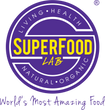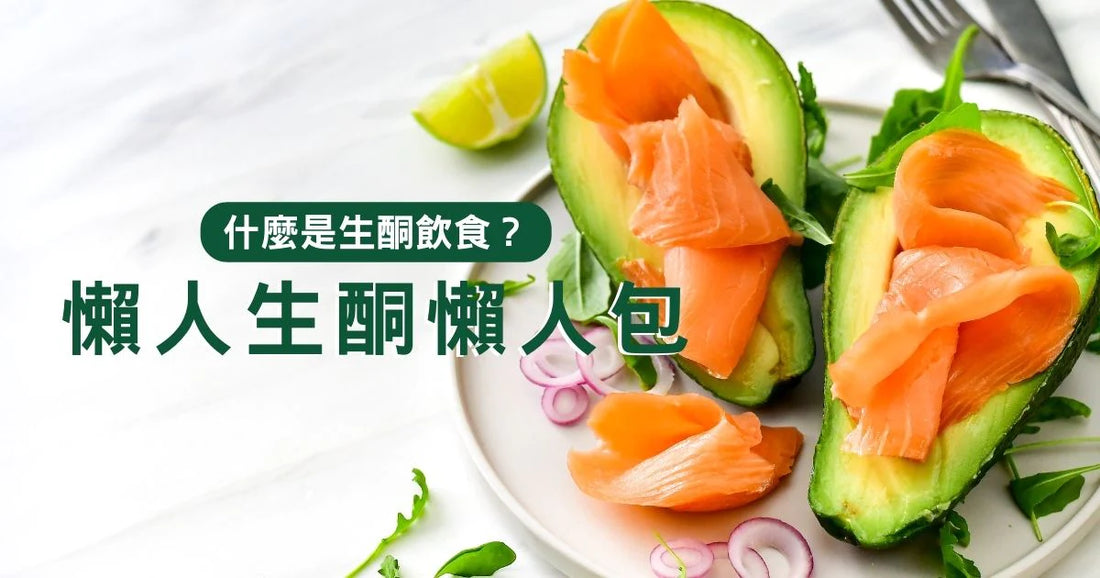The ketogenic diet is one of the most popular weight loss methods in recent years. By controlling the intake of carbohydrates, fats, and proteins, many people have achieved their desired weight loss results. Have you tried many weight loss methods but still haven't seen any results? Let's learn about the principles and menus of the ketogenic diet together!
What is the ketogenic diet?
The ketogenic diet advocates a high-fat, moderate-protein, and low-carbohydrate diet that simulates the body's starvation state, causing the body to burn fat (ketones) instead of carbohydrates (glucose) directly. In other words, it makes fat the main source of energy, resulting in faster weight loss!
The ketogenic diet emphasizes a high-fat and low-carbohydrate diet menu, which limits the amount of carbohydrates to only 5% of the total calories. Approximately 20% to 25% of the calories should come from protein, while the remaining 70% to 75% of the calories should come from fat.

There are several common ways to follow the ketogenic diet, including:
Standard ketogenic diet (SKD): Consuming about 70-75% fat, 20-25% protein, and less than 5% carbohydrates per day. This dietary pattern usually leads to the body entering a state of ketosis.
Short-term ketogenic diet: This dietary pattern typically lasts for a few days or weeks and aims to quickly enter a state of ketosis. The dietary ratios are similar to those of the standard ketogenic diet.
Targeted ketogenic diet (TKD): This dietary pattern increases carbohydrate intake on training days to provide more energy and support muscle recovery. Non-training days are the same as the standard ketogenic diet.
High-protein ketogenic diet: This dietary pattern increases protein intake on top of the standard ketogenic diet, typically consisting of 30% protein, 60% fat, and 10% carbohydrates per day.
Lean meat ketogenic diet: This dietary pattern emphasizes low-fat protein sources, such as chicken, turkey, fish, and seafood. Fat intake is typically slightly lower than that of the standard ketogenic diet, around 65-70%.

Who is suitable for the ketogenic diet?
Individuals who are overweight or obese: The ketogenic diet can help with weight and fat loss, improve metabolic function, and overall health.
Individuals with diabetes: The ketogenic diet can help improve insulin sensitivity and blood sugar control, reducing the need for medication.
Individuals with epilepsy: The ketogenic diet has been shown to have a certain degree of control over seizures.
Individuals with metabolic syndrome: The ketogenic diet can help lower blood pressure, blood sugar, and cholesterol, reducing the risk of metabolic syndrome.
Individuals with certain neurodegenerative diseases: The ketogenic diet has shown effectiveness in preventing and treating certain neurodegenerative diseases such as Alzheimer's and Parkinson's disease.

During a ketogenic diet, it is recommended to eat the following foods:
- Meat: Beef, steak, ham, sausage, bacon, chicken, turkey
- Fish: Salmon, trout, tuna, mackerel
- Eggs: Free-range eggs
- Butter and cream: Grass-fed butter and cream
- Cheese: Cheddar, mozzarella, Chevre, cream cheese
- Nuts and seeds: Almonds, walnuts, flaxseeds, pumpkin seeds, chia seeds
- Fruits: Guava, kiwi, grapefruit, watermelon, berries
- Fat sources: Olive oil, coconut oil, avocado oil
- Mushrooms: Enoki, shiitake, button, portobello
- Low-carb vegetables: Tomatoes, onions, bell peppers
- Seasonings: Salt, pepper, herbs
The following foods are not recommended during a ketogenic diet:
- Sugary drinks and foods: Soda, fruit juice, milk, cake, ice cream, candy
- Grains: Wheat and its products (e.g. rice, pasta, cereal)
- Fruits: Most fruits (e.g. apples, bananas, mangoes, dragon fruit)
- Legumes: Peas, beans, chickpeas
- Root vegetables: Potatoes, sweet potatoes, carrots
- Seasonings: All sugar-based seasonings
- Alcoholic beverages: Beer, cocktails, wine coolers
- Sugar substitutes: Sugar alcohols - xylitol, maltitol, agave nectar, maple syrup.
Dirty Keto recipes with Superfood Lab's signature products:

Detox Chia Seed Pudding Recipe
Ingredients:
- 1 scoop of SuperGreen powder
- 1 scoop of SuperHot powder
- 1 cup of juice or water
- 1/4 cup of chia seeds
- 1/4 cup of soy milk
- Dr. Rare Sugar sweetener
- Chopped fruits and pumpkin seeds for topping
Instructions:
Mix SuperGreen powder and SuperHot powder with juice or water in separate bowls.
Divide chia seeds evenly into both bowls and let them soak for 10-15 minutes.
Add soy milk and Dr. Rare Sugar sweetener to each bowl and stir well.
Pour the mixture into serving glasses and refrigerate for at least 1 hour.
Top with chopped fruits and pumpkin seeds before serving.

Strawberry Chocolate Ice Yogurt Recipe
Ingredients:
- 8 oz cream cheese
- 1/4 cup of cocoa powder
- Dr. Rare Sugar sweetener
- 1/4 cup of chopped dark chocolate
- Sliced strawberries for topping
Instructions:
- In a mixing bowl, combine cream cheese, cocoa powder, and Dr. Rare Sugar sweetener.
- Add chopped dark chocolate and mix well.
- Scoop the mixture into a baking dish and spread it out evenly.
- Arrange sliced strawberries on top and freeze for 2-3 hours.
- Cut into squares using a warm knife before serving.
In addition, choosing fat-burning ingredients or zero-carb sweeteners can help control calorie absorption and make the process of following a ketogenic diet even easier!
SuperHot Fat Burn

The ketogenic diet, when combined with SuperHot's patented anti-sugar ingredients, can significantly reduce calorie intake and control carbohydrate consumption. Without sufficient sugar, the body will convert fat into energy, leading to the consumption of body fat and greatly enhancing weight loss results.
SuperHot contains natural super fiber PHGG, a water-soluble fiber that, when combined with water in the digestive system, forms a gel-like substance, creating a natural barrier that slows and prolongs the breakdown of sugars and starches, inhibiting up to 50% sugar and 20% calorie absorption.
Take one packet of SuperHot with 100ml of water, beverage, or food before each meal to help your body resist sugar and starch, reduce the burden of the ketogenic diet, and enjoy your food in moderation. It can also control the absorption of glucose and fats in your diet, such as carbohydrates, sugars, or high-fat foods, enabling you to effectively carry out your dietary plan.
Learn More:SuperHot Fat Burn
Superfood Lab's【Anti-Sugar Doctor】Rare Sugar

In recent years, low-sugar and low-carbohydrate dietary methods have become popular, and rare sugars are used in menus to reduce sugar intake and achieve sugar control and weight loss.
Rare sugars are a class of natural sugar molecules that are rare, such as xylose, arabinose, and mannose. Unlike common sugar molecules, some studies have shown that the intake of rare sugars can improve insulin sensitivity, reduce blood sugar and insulin levels in diabetic patients. In addition, rare sugars also have antioxidant and anti-inflammatory effects, which can help improve vascular function and metabolic status in diabetic patients.
Replacing common sugar intake with rare sugars may be a healthier dietary choice, reducing insulin use in diabetic patients and improving blood sugar and metabolic status.
Rare sugar has 70% sweetness of sucrose, but contains 90% fewer calories than sucrose. In addition, its metabolic process is different from sucrose, and has minimal impact on blood sugar and insulin levels. For those who are concerned about weight or blood sugar levels, even long-term consumption will not have a negative impact on health.
Learn More: Dr. Rare Sugar






![[NEW] SuperHOT Fat Burn 14 pack](http://www.superfoodlab.com/cdn/shop/files/SuperHot14packs_1.jpg?v=1741339505&width=550)